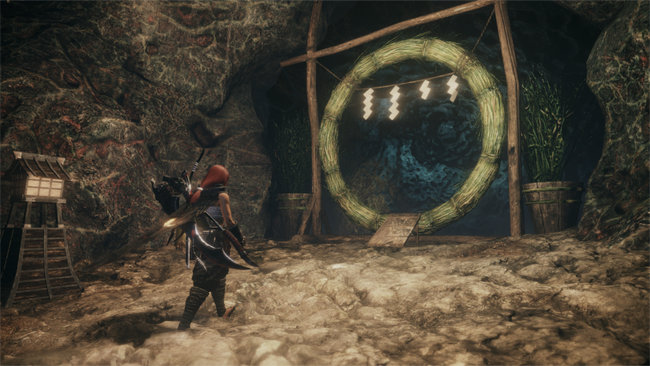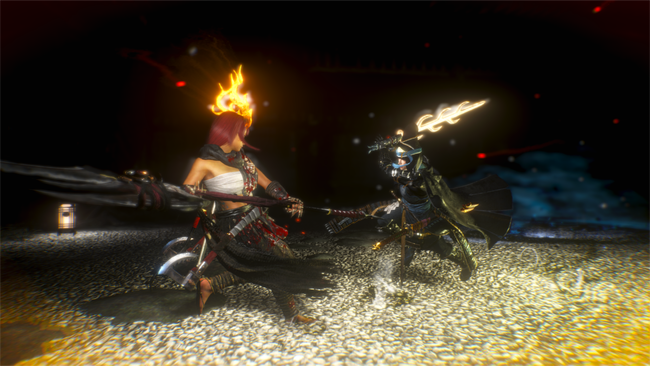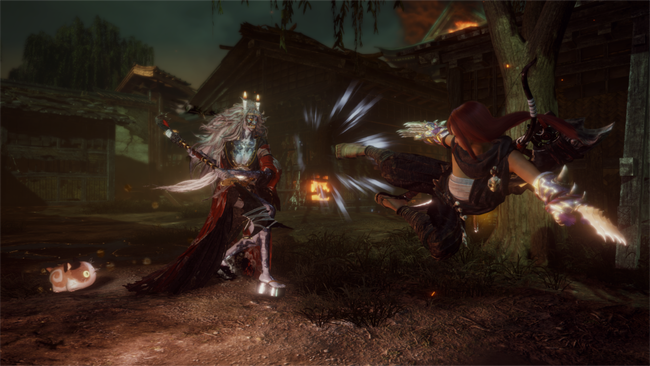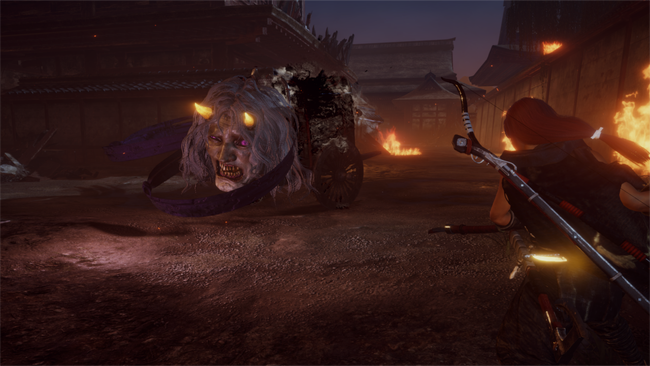
Nioh 2 Darkness in the Capital Review
Middle chapters are always a complicated thing. When a story adheres to the classic three-act structure, one could argue that the second act is the most important one. Without a solid way to tie the beginning of a plot to its end, you’re left with a story that feels rushed or incomplete. Nioh 2 just got its second piece of DLC, Darkness in the Capital, and as the middle chapter of a trilogy, it has some issues. However, as just a chunk of more Nioh 2 content, it’s even more spectacular and fun than what the rest of the game already was.
When it came out, Nioh 2 was a fantastic game. It’s first DLC, The Tengu’s Disciple, remained fun but had a weaker story than I expected. Now that we’re here, two-thirds of the way done with the planned post-launch content for Nioh 2, it’s hard not to think about the inevitable end. For better or worse, Darkness in the Capital answers most of the doubts I had about The Tengu’s Disciple and its nature as a setup for the conclusion of the story. The truth is that the answers I got weren’t really what I wanted.

Just like The Tengu’s Disciple before it, Darkness in the Capital has our character travelling back in time. While we still are visiting the Heian era of Japan, this time around we go to the year 976 to meet with the legendary Minamoto no Yorimitsu and Abe no Seimei. Both are famous figures of Japanese folklore, and in Nioh 2 they have integrated into the story thanks to the object that seems to be the focus of the DLC trilogy: the Sohayamaru. This is the sword that ultimately becomes the protagonist’s yokai-banishing dagger, and it was present in the previous DLC. Here, Minamoto no Yorimitsu is its wielder and it becomes clear that the sword has always been in the hands of important warriors.
As interesting as that setup sounds, this second piece of DLC runs into some of the same storytelling problems that affected The Tengu’s Disciple. We have yet again another time travel story, which means that the characters from the DLC itself are the ones that have to carry the narrative. The main problem that these new stories share is that their short length and their somewhat self-contained nature don’t really allow for the same emotional investment that the main narrative did. With only three main missions that have our character go to the past and come back to the present, Darkness in the Capital doesn’t have enough time to establish these new characters.

While this narrative issue is the only real problem I’ve had with the DLC, it does worry me in regards to the next one. Given that this batch of DLC expansions are being presented as a trilogy, there is a pattern that each individual piece of content has followed so far that might also repeat for the final DLC: two or three main missions that involve travelling to the past to meet a previous wielder of the Sohayamaru. That would make for interesting context as a side-story, but as a trilogy that takes place after Nioh 2, it feels a bit weightless. There aren’t any real stakes because there’s no real setup for conflict; at least not until the very end. The third DLC, whenever it launches, will have to do some serious lifting in order to not make the whole additional trilogy feel unnecessary — at least in terms of story.
All that being said, Darkness in the Capital might just be some of the most fun I’ve had with Nioh as a series in terms of gameplay. Just like the previous DLC, this one introduces a new type of weapon: fists. Whether you pick up a regular fist weapon or a clawed one, these open up a moveset so unique to the game that left me in awe. While you could use your bare hands before, with fist weapons you essentially perform different types of martial arts that vary depending on your stance. A low stance fist, for example, bears resemblance to the drunken fist martial art, while a high stance fist uses heavier, more deliberate punches and stomps.

Key to making the fist weapons work is their unique gimmick. One of the very first skills you can unlock in its skill tree allows you to cancel Active Skills into either normal attacks or other Active Skills, while giving you a stackable buff based on the number of cancels you perform. All of a sudden, fist weapons make Nioh 2 feel a lot like a fighting game, where you can truly think of combos in a more traditional sense instead of just linking attacks one after the other. It’s truly commendable how Team Ninja always finds ways to make every new weapon fun and interesting, but with the fist weapons they really outdid themselves.
Of course, fun weapons would mean nothing without the content to support them, and Darkness in the Capital delivers in this regard in spite of its storytelling problems. The few new maps are very fun to explore, and the new enemy designs are even better than those in the first DLC. What’s more, the boss fights in this expansion are truly incredible, which is hard to believe considering that The Tengu’s Disciple was already excellent in this aspect. If there is one word to describe the fights in Darkness in the Capital its “spectacle”, and that applies both in a visual sense as well as in gameplay.
Along with these new missions, Darkness in the Capital continues the Nioh tradition of adding reasons to engage with the endgame. Once again, we have a new difficulty level that represents New Game +++, and with it comes a new tier of rarity to grind for. Of course, not every Nioh 2 player will get there, but for those who do this will keep them busy enough trying to optimize all their cool new gear. In fact, one of the most interesting additions to gear improvement is the ability to upgrade your accessories, something that Nioh 2 lacked and that I, personally, really wanted in order to make my build even stronger.

Now that two out of the three DLC packs that the Season Pass offers are out, it’s easier to answer if it’s worth it or not. Darkness in the Capital definitely paints a less-than-optimistic picture for the overall narrative of this trilogy. The people who are looking for more story content will surely find some here, but not of particularly great quality. However, if just the act of playing Nioh 2 is enough to get someone back into the game, then this DLC is outstanding. Even if the narrative doesn’t hold its end of the bargain, all of the improvements and additions to gameplay carry the entire DLC on their own. It remains to be seen how the third and final DLC will wrap things up, but if Team Ninja can keep up delivering gameplay of this high quality, then I’ll consider it a success in spite of everything else.